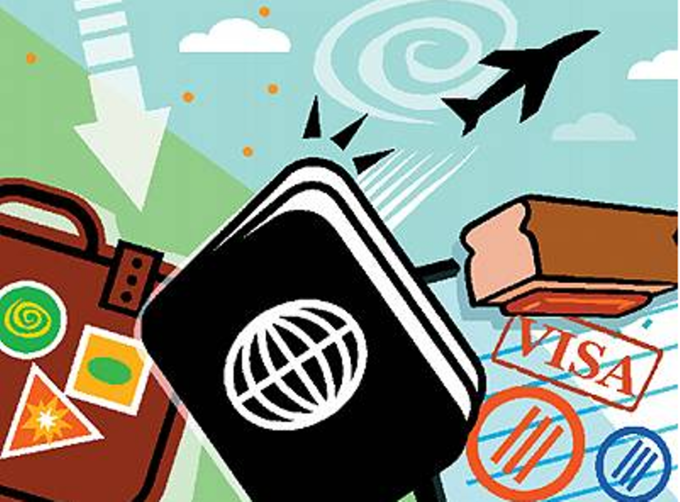
Indians love travelling to both domestic as well as international destinations. And while the country offers diverse
According to a report on tourism and hospitality sector under the ‘
However, industry players have often complained that even though the successive governments have recognised the contribution made by the sector, they have hardly given the industry its rightful due.
Nevertheless, this time the travel industry is hopeful of the
Taxation: Killing the golden goose?
Players have often asserted that multiplicity of taxes coupled with a complex taxation policy have marred the travel agents in the country. “Travel as a sector is considerably dependent on foreign transactions and can contribute substantially to the nation’s foreign exchange reserves. The taxation policy for the sector is especially nuanced and has several facets that need to be reviewed,” says Rakshit Desai, managing director India, FCm Travel Solutions and Flight Shop.
He added, “By extending the measures introduced in the previous budget, we look forward to some fundamental changes to simplify tax structures. A case in point is the CENVAT credit for services benefiting from an abated tax rate. Currently applicable to rent-a-cab services and tour operators, this needs to be expanded to cover the complete gamut of travel related services covered by abatement to limit taxation to value addition.”
It should be noted that most players have often complained that multiplicity of taxes in India gives an edge to other Southeast Asian countries such as Singapore, Indonesia, Thailand and Malaysia.
Is it an unfair treatment?
Subhash Goyal, chairman of STIC Travel Group and president of Indian Association of Tour Operators (IATO), said, the industry may get some relief on implementation of the Goods & Services Tax (GST).
“The problem is that tourism is not treated at par with other export-based sectors. While sectors that export goods are exempted from service tax, the tourism industry, which is a part of service sector, is made to pay the service tax. We want the government to treat us as other foreign currency earner,” averred Goyal.
Desai of FCm Travel added that a slash in service tax will be a much needed relief to foster the sector’s growth. “This would be especially beneficial for travel operators in case of services rendered to foreign offices of global and multi-national companies, where travel originates outside India and payments are received in foreign exchange,” he noted.
Revitalisation of associate industries
India has a large base of air passengers. However, complex tax structure and lack of infrastructure is not allowing the airline companies to harness this resource to the fullest.
Industry players have asked the government must focus on reducing the taxes on aviation turbine fuel (ATF) as it has made airfare in India expensive, which has adversely impacted the sector.
According to Goyal, since the tax paid on ATF varies in different states, the implementation of GST becomes more imperative. “The government should restrict the tax levied on ATF to a maximum of 5% as anything more than that can make air travel in India expensive, thus benefiting other Southeast Asian destination such as Thailand, Singapore, Indonesia and Malaysia, which are more cost-competitive,” he pointed out.
Also, the lack of infrastructure has adversely impacted the growth of the aviation industry. Vedaranyam said, “There is a recent spurt in domestic travel as well as a higher influx of foreign tourists in India and with dedicated upkeep of the tourist hotspots, we can ensure higher growth for the travel industry. Additionally, I wish that there is an allocation towards revitalising all unused airports in tier II and III cities as these geographies hold immense potential today. There should also be a rationalisation of air travel taxes for competitive pricing to boost travel and tourism”.
In terms of the availability of adequate rooms, the travel industry expects the government to address the issue of shortage of room inventory in the major tourist destinations. DS Rawat, general secretary of ASSOCHAM, said that the government should focus on finding ways to increase the number of budget hotels for more room inventory.
“The government should accord ‘Infrastructure’ status for hotel projects with minimum 50-100 rooms (from current cost-based criteria of Rs 200 crore) and reduce availability constraints by expanding mid-segment hotels of 2-3 star categories,” suggested Rawat.
Innovation: the key to success?
To ward off the fear of cut-throat competition, Rawat recommends “Launch projects to create 50 tourist circuits around themes of Heritage, Culture, Himalayas, Desert, North East Region, Coastal, Sports and Films. Create a Hindu Circuit akin to Buddhist Circuit; explore synergy with North East,
Our view
BI India feels that the government must protect the interest of the players in this sector especially since it employs a large part of our working population. The government must also realize that the industry is also responsible for bringing together several disorganised sectors and hence should implement measures that promote the growth of the travel industry.
At present, India does not even contribute 1% to the international travel market. Nevertheless, it can be turned around as the country as a tourism destination has a huge potential to woo both foreign and domestic travellers.